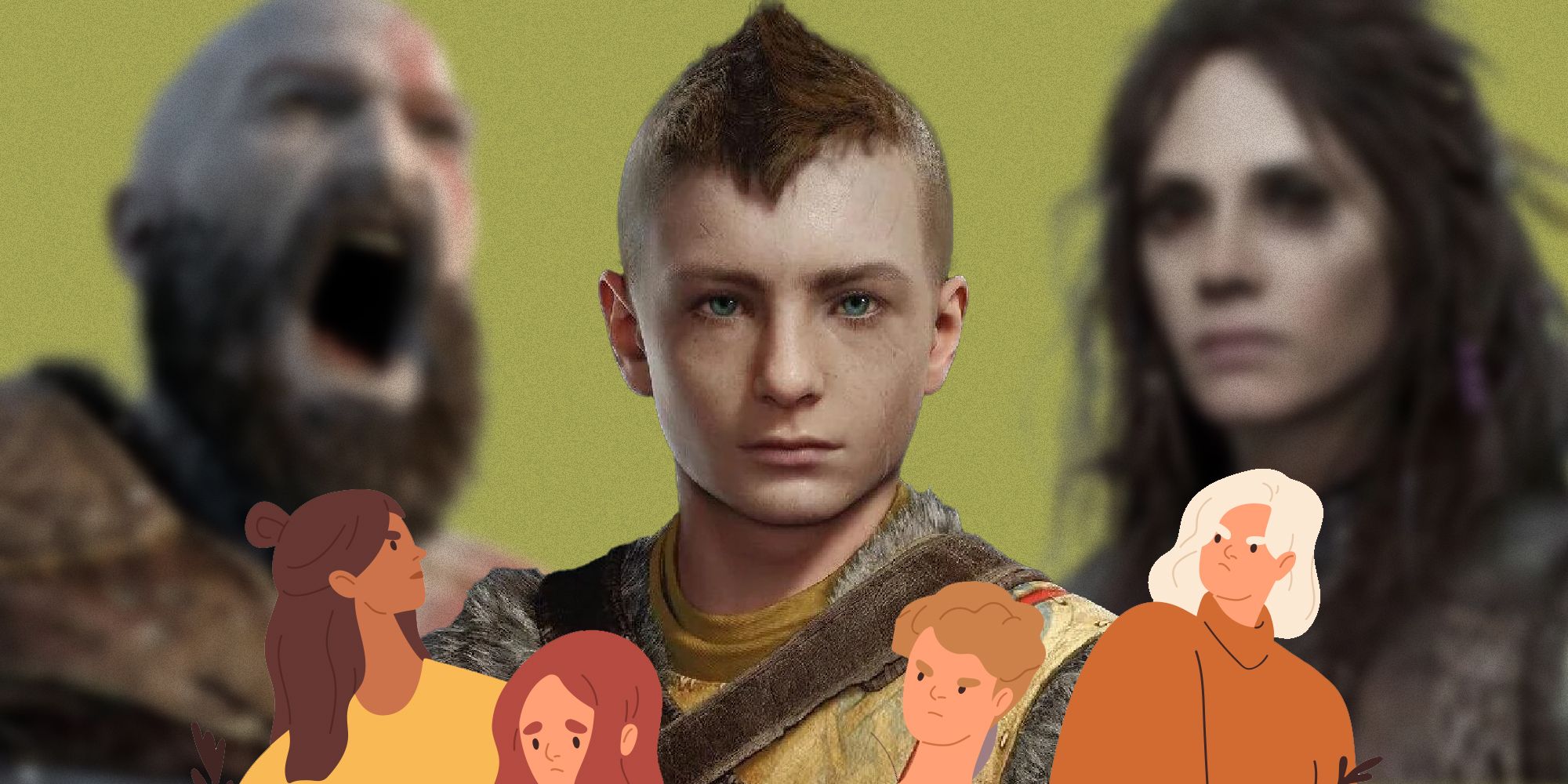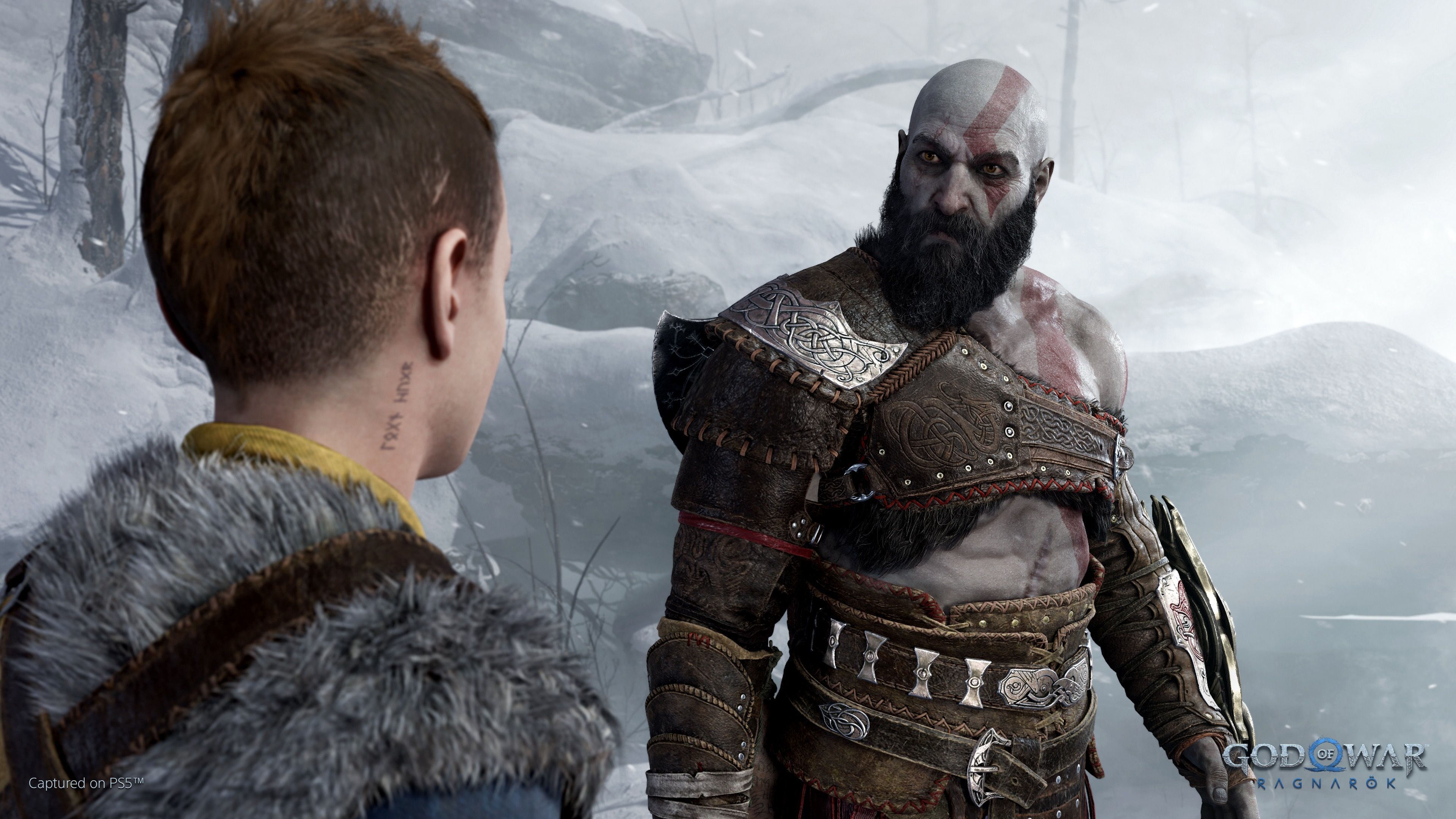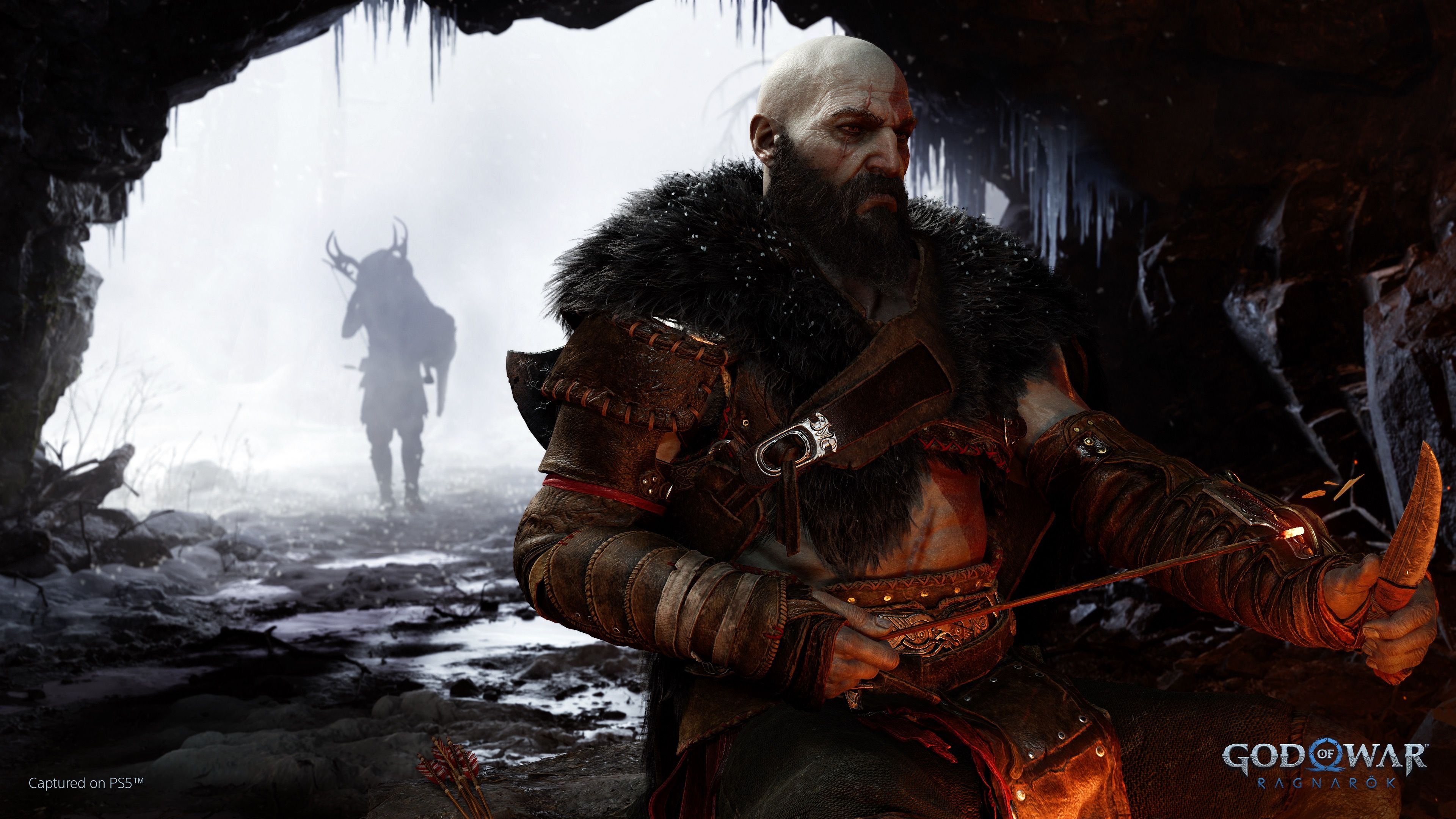God of War Ragnarok is ultimately a story about parenthood. We might be gathering allies and fighting against daunting enemies as the Norse apocalypse awaits on the horizon, but ultimately it comes down to a father and son duo finding their place and coming to respect the trauma that guides them. Kratos and Atreus have been through hell and lost so much, but in the midst of it all they’ve grown closer and conquered insurmountable obstacles.
Such a journey isn’t accomplished without arguments and setbacks, with much of the first game having Atreus act out, throwing himself into situations he isn’t remotely ready for. He both wants to be like his deicidal father and respect his late mother’s wishes. This would be hard enough to parse without the lingering threat of gods eager to banish you from the realm and a true identity hidden away to protect you from a fate you aren’t yet prepared for.
Atreus is an absolute asshole throughout the first game, his shrill voice and nonsensical arguments long becoming a thorn in our side as we learn to adapt to his tantrums and understand a child who has become too big for his boots. Yet it’s also a realistic interpretation of a displaced young man struggling with his fractured identity, and the only one he has to turn to is an emotionally stunted murderer who is only just learning to be vulnerable. You could say its thematic ambitions are rote and predictable, but it’s done well and draws us in regardless.
I came to care for their relationship, hoping they’d mend broken bridges and reach a mutual understanding of everything they’re going through. God of War takes us on a pilgrimage driven by grief, with so many of its mental obstacles refusing to budge because neither of our core characters know how to articulate the impact of loss and what it means to them. This is shown through expressions of bloody violence and vocal outbursts, with Kratos an almost monosyllabic symbol of authority who only speaks when spoken to. Yet he is also a sworn protector, doing everything to keep his son out of harm’s way even if it means preventing his growth into a teenager who can walk, think, and act on his own. Atreus’ character arc in Ragnarok is a direct consequence of Kratos’ mistakes, and it’s so far fascinating to witness.
In the sequel, Atreus is more independent, living life on his own terms even if it means sneaking away during the night to explore new realms and further his own agenda. His father can’t exactly stop him, nor can he prevent the magical powers emerging as he grows older. Watching his position as a father figure falter as he learns to not only follow his son’s directions, but respect his ideas and what he believes in is undeniably heartwarming, even if the two still butt heads on the idea of going to war because of all the evident consequences it will bring. Kratos has lost so much because of his own foolishness, and a willingness to cut down his enemies before considering the wider picture. For once in his life he now has the power to think differently, and better yet, he has people to protect.
This prolonged stubbornness also causes Atreus to hide away his intentions, worried his father will act out or punish him for taking the initiative. I just took control of him for the first time as he goes to meet Freya with Sindri in tow. The two engage in surprisingly candid conversations about their past, and the quandaries they are currently dealing with and have no way of tackling. Atreus confides in his dwarven friend about Kratos’ quick temper and his fear about going to war, especially since their current trajectory will make conflict all but inevitable. When alone, Atreus even talks to himself, muttering away about not having a role model to look up to who isn’t defined by memories he will never be privy to.
Atreus' dialogue is often cringe-inducing and foolish, but also genuine in its depiction of a teenager so pathetically out of his depth. In the first game, players loved to decry his spoiled attitude and unwillingness to listen, but how else is a child supposed to behave in situations that would make even the most hardened of adults crumble? He asks questions lined with natural curiosity, and believes he must be brave and outspoken to mimic the father he begrudgingly looks up to. Ragnarok sees this child grow into a teenager, one with further agency who questions his own existence and how he can make the world a better place with the right choices. Kratos doesn’t always agree with him, but enables their quest for Tyr if it means avoiding a war that will see them both killed.
I’m not sure where the narrative is going or what awaits Kratos and Atreus in the hours to come, but part of me is glad that Atreus has become a voice of optimism and protest in a world defined by bloodshed. He’s the next generation, even if he vaguely believes going to war and presenting his side as morally just will only make things worse before they get better. As an individual he is yet to be corrupted by the world in which he resides, and this contrasting perspective is teaching Kratos to embrace love and compassion for the first time since his wife passed away. Let this moody teenager have his way, he’s earned that much.



